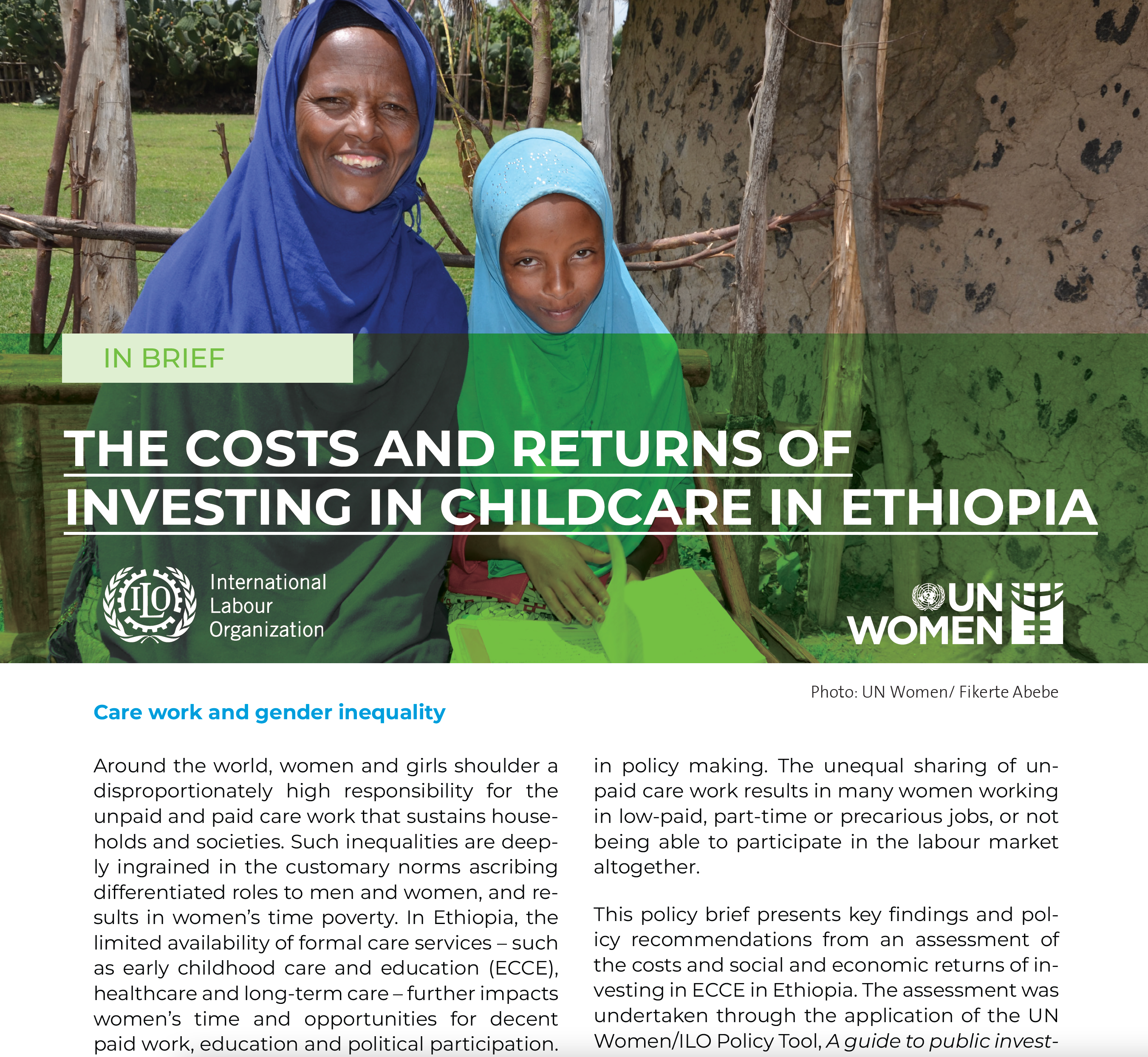
The Costs and Returns of Investing in Childcare in Ethiopia

Evidence suggests that investment in the care economy has significant economic returns (in addition to social dividends) in terms of job creation, domestic revenue and economic growth, as well as reducing gender inequality in the labor market. In Ethiopia, an estimated 53% of women work in the informal sector. Further, the overwhelming majority (92%) of pre-primary teachers are female. This indicates the potential in policy making. The unequal sharing of unpaid care work results in many women working in low-paid, part-time or precarious jobs, or not being able to participate in the labour market altogether. This policy brief presents key findings and policy recommendations from an assessment of the costs and social and economic returns of investing in ECCE in Ethiopia. The assessment was undertaken through the application of the UN Women/ILO Policy Tool, A guide to public invest-ments in the care economy.